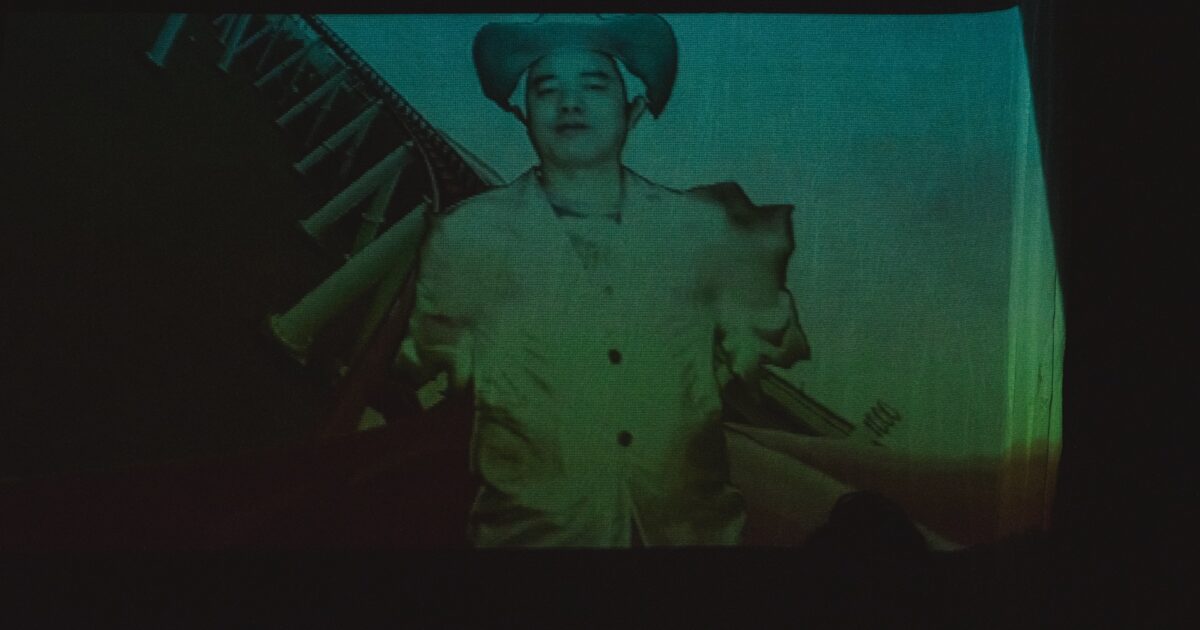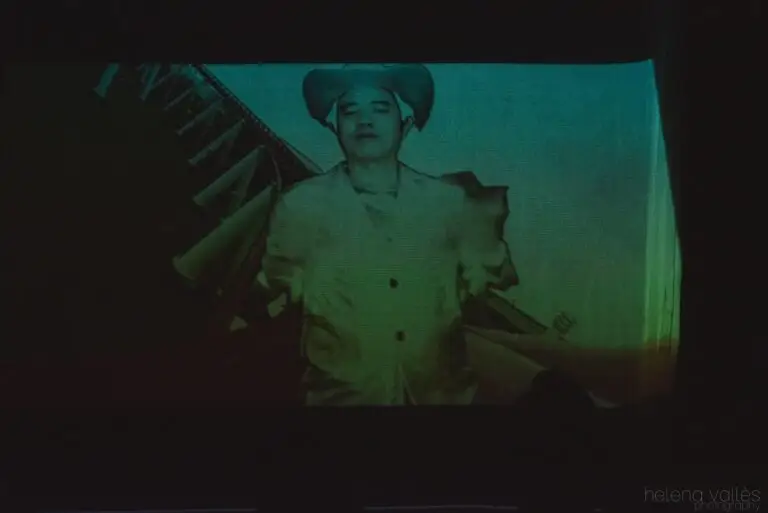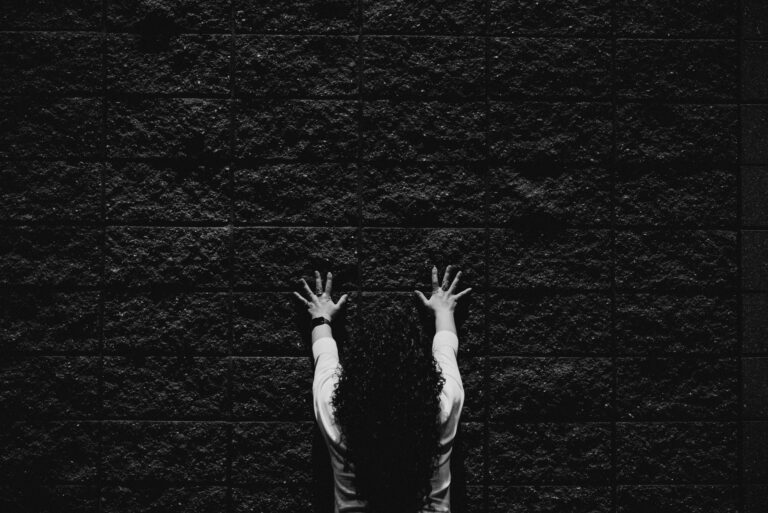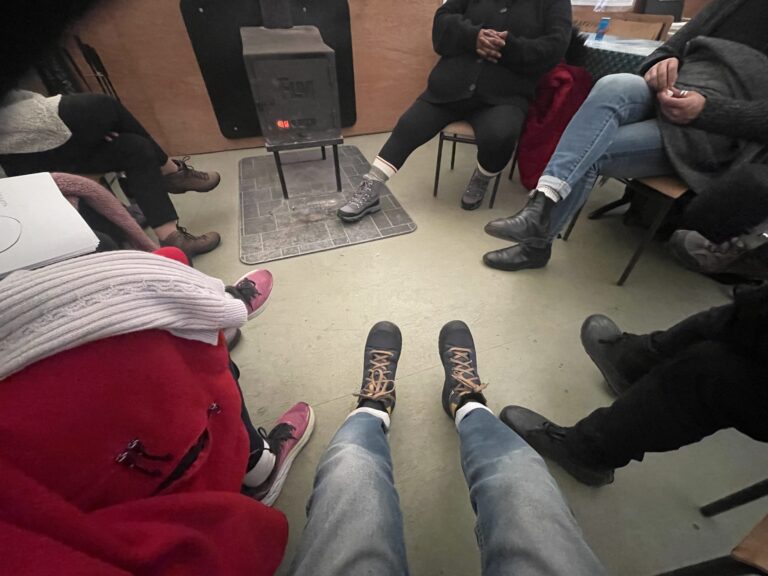Welcome to Postmarginal’s annual performance research labs, “Alternative Dramaturgies: Marginality, Senses and Technology”.
Inspired by the hybridity of practice found in The Centre Cannot Hold, artists working with or between different psychological, artistic, physical and ethnocultural perspectives are called upon to develop and test new dramaturgical ideas in laboratories that involve interactive, immersive and other technological devices (eg. vibration, immersive sound, volumetric video, motion triggering).
Together, artists and researchers unite around the idea that atypical physical and neurological experiences create unique perceptions of the world and art. With creative works-in-progress as the basis of exploration, they examine such topics as:
- How can technology refocus marginal perspectives in dramaturgy?
- What creative opportunities or challenges does technology offer artists?
- What new dramaturgies might emerge?
- What sensory experiences can technology communicate to audiences?
- What is shared between artists as physical and emotional experiences?
- What are the relational aspects of their experience?
PROJECT HISTORY
The first edition of alt[d took place between August 2023 and February 2024.
Phase I: Kick-off meeting at Eastern Bloc 21-25 August 2023
The project was launched in August 2023 with a 4-day workshop held at Eastern Bloc. From 25 to 29 August 2023, alt[d partners, researchers and artists came together to present their artistic visions and/or research topics. Together, they defined the beginnings of a working methodology based on the exploration of vibration, video tracking and 3D sound technologies. At a public presentation on Friday August 29th, the audience was invited to listen to the aims of the project and its relationship with the artists’ marginality.
Phase II: Lab COHDS October 23-27, 2023
alt[d made its first practical explorations during a five-day laboratory organized at the Centre for Oral History and Digital Storytelling at Concordia University from 23 to 27 October 2023. Artists and researchers came together for five days of practical exploration of technologies and their use in dramaturgical creation. The aim of the lab was to understand the technological needs of artists and how best to use the technologies in the artists’ respective dramaturgies. Photos and video by Helena Vallès Escolà.
Phase III: Lab2M – From 12 to 24 February 2024
Work continued in February 2024 with two weeks of exploration at Lab2M, Théâtre Les2mondes. We met in the space for practical explorations with our dramaturgical material to propose drafts of our scenes. A public presentation of the artists’ work and a round-table discussion took place on Friday 23 February at Lab2M, with a hybrid online broadcast.
Here is a link to the recording of the entire Lab2M presentation (2 hours)
Listen to the audio of the roundtable only with the artists in French (45 minutes):
The Participants
David Bobier, Vibration Artist & Researcher (VibraFusion Lab)
Romane Bocquet, Technical Director
Jean-François Boisvenue, Artist
Joy Boissière, Technology Assistant
Audrey-Anne Bouchard, Artist
Vytautas Jr. Bucionis, Musician
Peter Farbridge, Artist/Postmarginal Coordinator
Kagan Goh, Artist
Florian Grond, Sound Researcher (E2IAN)
Vik Hovanisian, Performer, Dramaturgical Consultant
Malte Leander, Sound Designer
Keven Lee, Facilitator/Moderator of presentation
Armando Menicacci, Isadora and Video Consultant
Nicolas Berzi, Multimedia Dramaturgy Consultant
Shrina Patel, Performer
Melissa Park, Researcher (E2IAN)
Jim Ruxton, Technical Support Vibration (VibraFusion Lab)
Mélanie Stuckey, Researcher (CRITAC)
Victor Tamarit, Documentary Video Editor
Helena Vallès, Photographer & Documentation Coordinator
Artist Bios
Audrey-Anne Bouchard is a director and lighting designer who lives with a visual disability. She creates multi-sensory, immersive shows for audiences with and without sight.
Jean-François Boisvenue is a multidisciplinary artist who explores facets of his neurological uniqueness, such as synesthesia, in his work.
Peter Farbridge is an artist and creator interested in art inspired by the experiences and practices of so-called marginal artists.
Kagan Goh is a Vancouver-based multidisciplinary artist: published author, spoken word poet, screenwriter, performer, mental health advocate and activist.
Researcher Bios
Nicolas Berzi (Collaborator | Researcher | SIT) is a researcher-creator in the field of performing arts and interdisciplinarity, director, author, playwright, audiovisual designer and producer. For over fifteen years, Nicolas has been developing hybrid and technological stage designs. Nicolas will be working with the group as dramaturge during the workshop phase.
David Bobier (Collaborator| Researcher | VibrafusionLab is a media artist, educator, arts administrator and curator. He is the founder, director and curator of VibraFusionLab in London, Ontario, a public arts-based studio that investigates multi-sensory artistic modalities in the creation and presentation of art by and for people of all abilities. David will demonstrate the potential of haptic devices in the intersection of sound and vibration in performance.
Florian Grond (Collaborator | Researcher | E2IAN)is an associate professor at Concordia University in Montreal, Canada, a media artist and sound interaction designer. His research focuses on participatory design in the context of disability, the arts, immersive media and assistive technologies. Florian will introduce the group to binaural and immersive technologies.
Armando Menicacci (Collaborator | Researcher | SIT), director of research and development at Scènes interactives technologiques, is a researcher, artist and teacher. His work takes the form of visual, performative and editorial productions that revolve around the relationship between the arts, expressive physicality and technology. Armando will introduce the team to telepresence and video mapping technologies.
Melissa Park (Collaborator| Researcher | E2IAN) is an associate professor at McGill University’s Faculty of Medicine, with a background in art history, occupational science/therapy, medical anthropology and psychology. With Florian Grond, she will explore the impact of technologies on artists and their creative work.
The Partners
The project has been made possible by a partnership between Postmarginal, les Scènes interactives technologiques and VibraFusionLab, and is financed by Conseil des arts de Montréal, the Canada Council and the Conseil des arts et des lettres du Québec. Associated research partners include Centre for Circus Arts Research and Knowledge Transfer (CRITAC) and E2IAN (Tracing Ephemeral Experiences, Immersive Technologies/Techniques Aesthetics and Neurodiversity), Eastern Bloc, and Kokoro Dance (KW Studios).













